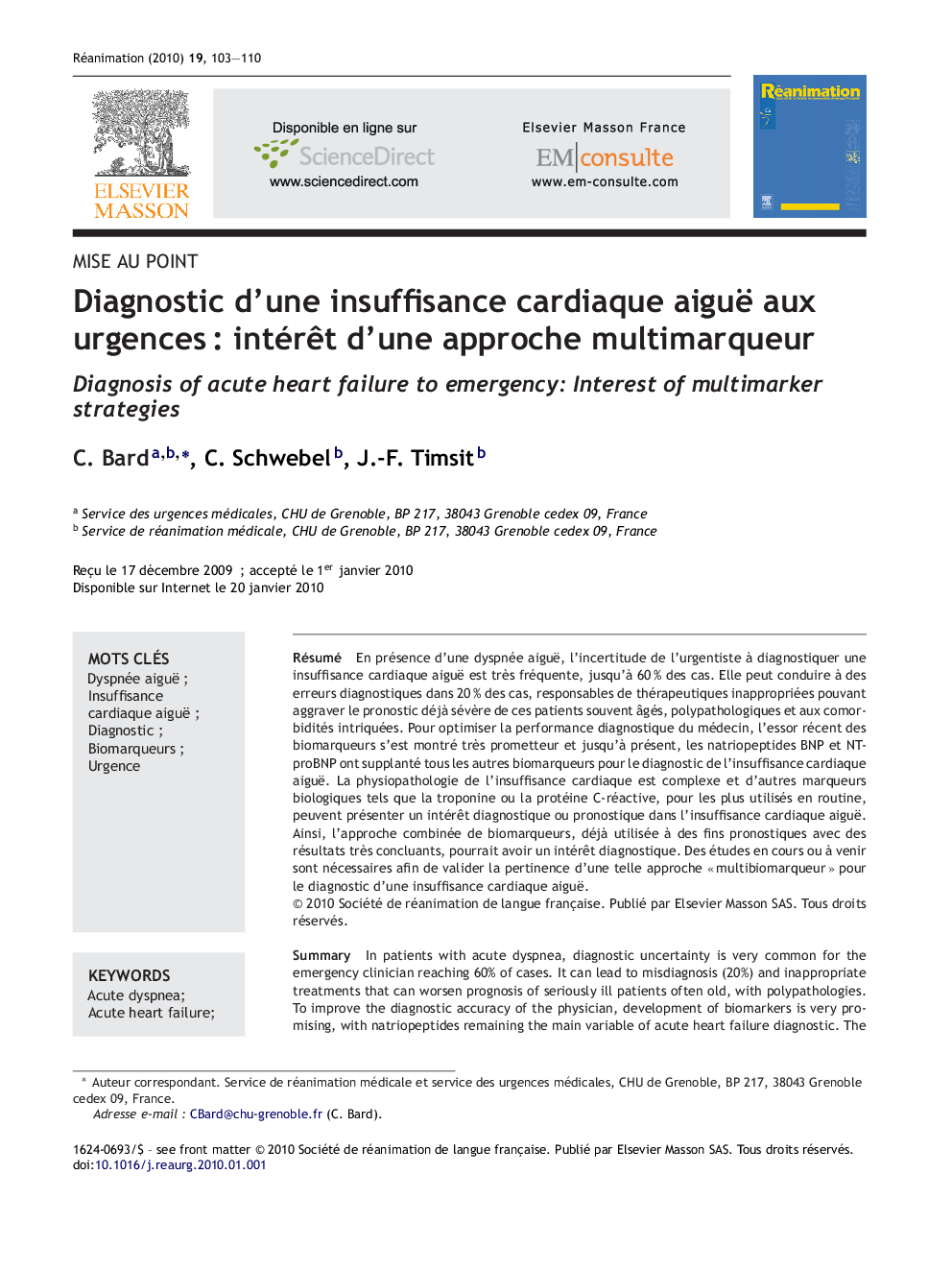| Article ID | Journal | Published Year | Pages | File Type |
|---|---|---|---|---|
| 2613206 | Réanimation | 2010 | 8 Pages |
Abstract
In patients with acute dyspnea, diagnostic uncertainty is very common for the emergency clinician reaching 60% of cases. It can lead to misdiagnosis (20%) and inappropriate treatments that can worsen prognosis of seriously ill patients often old, with polypathologies. To improve the diagnostic accuracy of the physician, development of biomarkers is very promising, with natriopeptides remaining the main variable of acute heart failure diagnostic. The pathophysiology of acute heart failure is complex and polyfactorial. It explains why other markers such as troponine or C-reactive protein possess diagnostic and prognostic properties in patients with heart failure. Multimarker strategies might improve diagnostic accuracy. Such approaches have been evaluated for risk prediction in patients with acute heart failure, with good results. Studies using multimarker algorithm are needed to assess its incremental benefit for acute heart failure diagnosis.
Keywords
Related Topics
Health Sciences
Medicine and Dentistry
Emergency Medicine
Authors
C. Bard, C. Schwebel, J.-F. Timsit,
